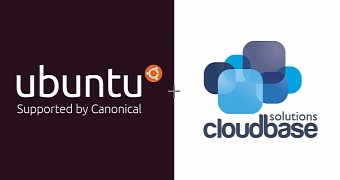Canonical has just announced a new partnership with Cloudbase Solutions, a company that develops Windows components in OpenStack, which will allow customers to run KVM and Hyper-V environments side by side in the same cloud.
Canonical has been making a lot of headway into the cloud business, and it's really showing. It was recently revealed that the 55% of the tasks in OpenStack are done in Ubuntu systems, which is actually a huge number. OpenStack is being used by huge companies, and Ubuntu is becoming more or less indispensable for this kind of enterprise use of the cloud.
It's also worth pointing out that a lot of progress has been done towards KVM and Hyper-V compatibility. Running them side by side in an enterprise cloud environment would have been difficult to imagine just a couple of years back, but it's a new work out there. Linux and Windows systems are becoming more and more connected, especially in this kind of settings.
Microsoft is also making interesting contributions
None of these partnerships would have been possible if Microsoft hadn't done some of the work. From a company that was focused on proprietary software, Microsoft is now moving to a more open source approach, although that transition is slow and aimed at the cloud business.
"BootStack now allows the integration of Keystone (OpenStack’s identity component) with Active Directory, either by leveraging an existing onsite domain or by provisioning a new fault tolerant Active Directory forest and domain. Networking between Ubuntu and Hyper-V hosts is based on modern overlay standards provided by Open vSwitch (OVS) with VXLAN, VLANs and soon NVGRE on Microsoft’s native networking stack, fully integrated in Neutron. Open vSwitch comes natively in Ubuntu and has been recently ported to Hyper-V thanks to Cloudbase Solutions, VMWare and the rest of the other members of the community," reads the announcement from Canonical.
OpenStack is becoming more and more relevant, and everyone is keen to jump in the cloud bandwagon. From the looks of it, Canonical already has a head start, and that can only translate into better products for its users, be they enterprise or just desktop.

 14 DAY TRIAL //
14 DAY TRIAL //